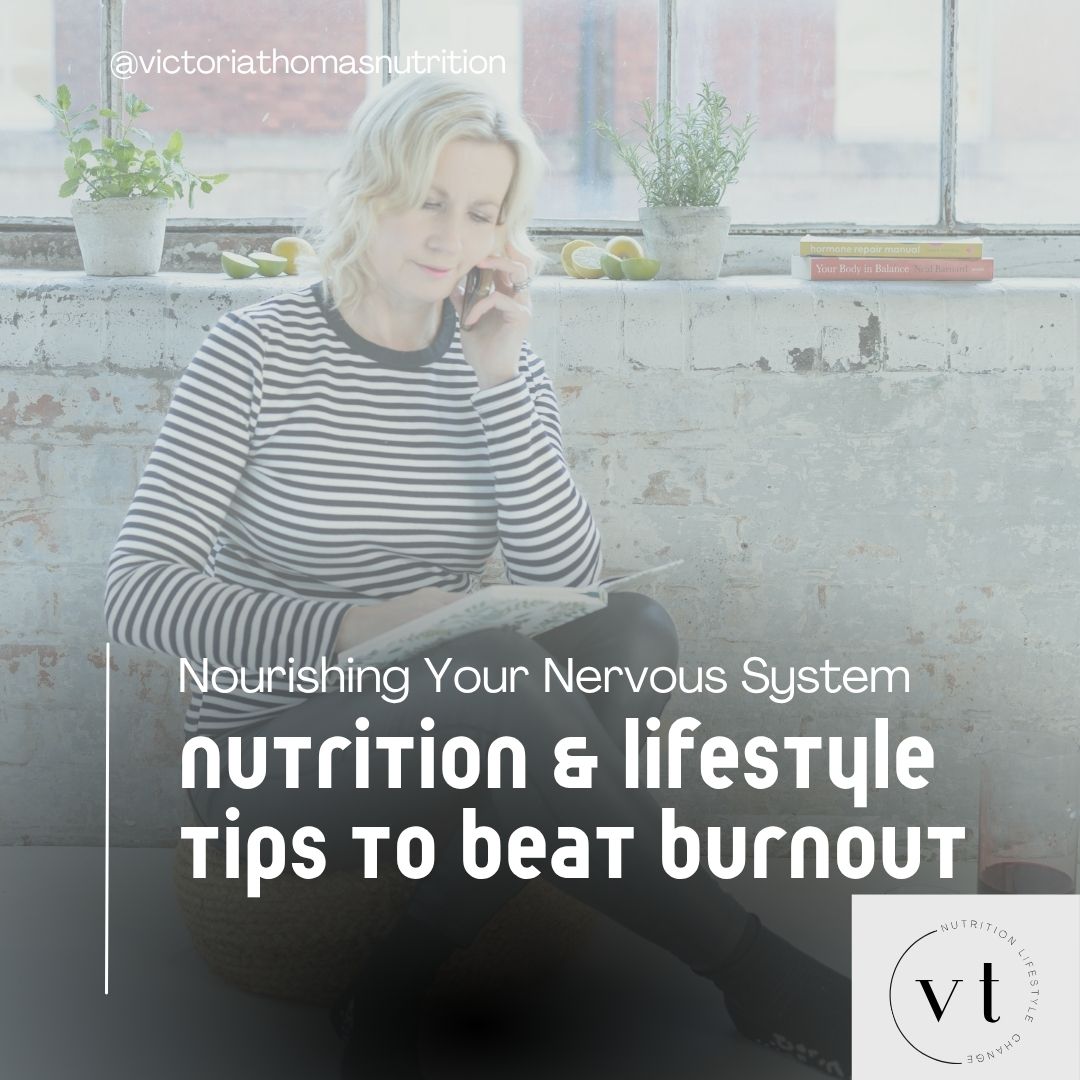Nourishing Your Nervous System – Nutrition & Lifestyle Tips to Beat Burnout

What exactly is burnout and why does it happen?
Burnout is when we are physically, mental and emotionally exhausted and is generally caused by chronic stress as a result of work, trauma and/or responsibilities at home and beyond. It can leave us emotionally exhausted, drained and overwhelmed and reduces our ability to cope even with the smallest of tasks. It can often leave us lacking in empathy for others and reduces our ability for simple care-giving; it increases our feelings of failure alongside a lack of motivation towards anything, even the things that once provided pleasure.
Burnout doesn’t just happen, it builds insidiously over a period of time.
But the good news is, we can prevent this from happening with a few simple daily habits that are easily built into your routine
Key Nutritional Strategies:
- Balance your Blood Sugar - Prioritise complex carbs, healthy fats, and lean proteins with every meal. Avoid extreme fasting or sugar binges, neither are helpful
- Hydration, hydration, hydration - Dehydration sometimes manifests as fatigue. Fatigue increases stress.
- Limit caffeine and alcohol - Alcohol disrupts sleep, period. Caffeine increases our stress load at a time when our stress bucket may already be overflowing. Try to reduce reliance where possible, your body will thank you.
- Support your Adrenals - Chronic stress places pressure on your adrenal glands; in essence they burn out from the prolonged production of Cortisol. Include Magnesium rich foods (think a handful of almonds and 2 squares of dark chocolate as a snack and some spinach or kale with dinner). Add in some Vitamin C rich foods (citrus fruits, red peppers). Choose foods rich in B vitamins – think eggs, meat, dark green leafy vegetables, avocados
Lifestyle Practices to Beat the Burn
- Prioritise a good sleep routine – Reduce reliance on phones, warm bath or shower, book or magazine, in bed by 10.30pm.
- Miniature moments of mindfulness: 2–5 minutes of breathwork - the 4-7-4 technique can be useful.
- Gentle Movement: Walking, yoga or pilates help calm the Nervous system much more effectively than crazy 5k runs or spin classes. Bigger is not necessarily better in this particular instance
- Digital Detox: Take 10 mins at lunchtime to down tools and get outside. Set limits before bed to calm the Nervous system in preparation for restorative sleep.
Stress will always be a part of life, none more so than at this midlife period. But, being aware of the impact it can have on your body and prioritising your health and wellbeing is the key to long-term success.
If this is you and you’d like some in-depth support then why not book yourself in for a free, no obligation health review and start reclaiming your power.
Book your free health review to start here.
If you also struggle to sleep, download my free sleep workshop here.
